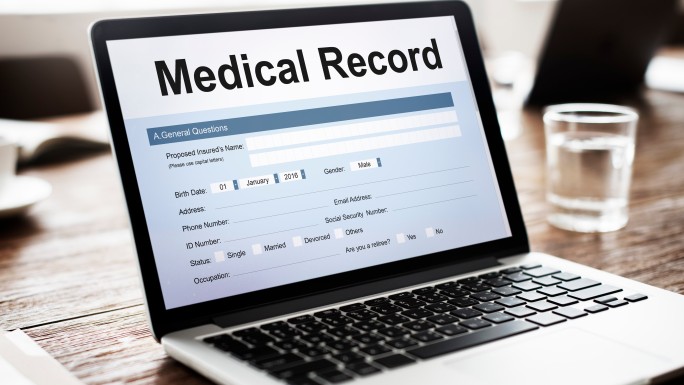Streamlining Clinical Trial Documentation with eTMF: A Game-Changer for the Research Industry
Clinical trials are complex operations that require careful documentation to ensure compliance with regulatory requirements and maintain data integrity. Traditional paper-based Trial Master File (TMF) management has long been the norm, but with the advent of technology, electronic Trial Master File (eTMF) solutions have emerged as a game-changer in the research industry.
In this blog, we will explore the benefits and features of eTMF and how it is revolutionizing the management of trial documentation.
What is eTMF?
Electronic Trial Master File (eTMF) is a digital platform designed to store, manage, and track essential trial documents and records throughout the lifecycle of a clinical trial. It includes a wide range of documents, like regulatory submissions, investigator brochures, protocol amendments, informed consent forms, and other critical study-related materials.
Key features commonly found in eTMF
- Real-time Monitoring and Reporting: Advanced eTMF systems include reporting and analytics features, enabling stakeholders to track document completeness, study progress, and compliance status, thus supporting informed decision-making and oversight.
- Integration Capabilities: In this technological era where interoperability is the growing trend in the healthcare industry, strong integration abilities make eTMF a powerful tool in clinical trials as it can integrate with other clinical trial management systems like Electronic Data Capture (EDC) platforms. This facilitates seamless data exchange between various platforms, reducing the errors affecting data integrity that are usually caused by manual data exchange.
- Audit Trails: eTMF platforms maintain detailed audit trails, logging activity related to document access, changes, and approvals, helping healthcare providers show transparency and traceability for regulatory inspections and internal quality assurance efforts.
![]()
- Collaboration Tools: Some eTMF solutions offer collaboration features, such as document sharing, commenting, and workflow management, fostering effective communication and coordination among study teams and stakeholders.
- User Access Controls: eTMF solutions provide configurable user access controls, allowing organizations to define roles and permissions for individuals involved in the clinical trial process, thus ensuring data security and compliance.
How do healthcare providers benefit from eTMF?
- Efficient Document Storage and Organization: One of the most significant advantages of eTMF is the ability to store and organize trial documents in a centralized, electronic format. With eTMF, there is no need for physical storage space or the hassle of searching through stacks of paper documents. Documents can be easily classified, tagged, and indexed, making it quick and efficient to locate and retrieve specific files when needed. This streamlined approach saves time, reduces errors, and enhances overall productivity.
- Real-Time Collaboration and Accessibility: eTMF solutions provide a collaborative platform that allows multiple stakeholders, including sponsors, investigators, and regulatory authorities, to access and review trial documents in real time. This real-time accessibility greatly improves communication and collaboration among team members, regardless of their geographical location. It eliminates the need for physical document transfers, reduces delays, and ensures that everyone has access to the most up-to-date information.
- Enhanced Security and Regulatory Compliance: Maintaining data security and compliance with regulatory guidelines is of utmost importance in the research industry. eTMF solutions offer robust security features, such as role-based access controls, document versioning, and audit trails, which ensure that sensitive trial documents are protected from unauthorized access or tampering. Additionally, eTMF solutions are designed to align with regulatory requirements, such as 21 CFR Part 11, making it easier to achieve and demonstrate compliance during audits and inspections.
- Improved Efficiency and Productivity: The automation capabilities of eTMF significantly improve efficiency and productivity in trial document management. Features like automated document generation, electronic signatures, and task tracking streamline processes, eliminate manual errors, and reduce administrative burden. Researchers can focus more on critical tasks, such as data analysis and patient care, rather than spending valuable time on administrative tasks associated with document management.
- Simplified Audits and Inspections: Audits and inspections are an integral part of clinical trials to ensure data integrity and regulatory compliance. eTMF simplifies the audit process by providing a comprehensive and easily accessible record of all trial documents. Auditors can quickly review and verify documents, track changes, and identify any discrepancies or non-compliance issues. This not only saves time but also improves transparency and accountability throughout the trial.
What are the differences between eTMF and CTMS?
Understanding the Roles
The eTMF serves as a centralized repository for essential trial documents, offering capabilities for document storage, organization, version control, and audit trail management. It primarily focuses on maintaining the integrity, completeness, and compliance of trial documentation throughout the study lifecycle.
On the other hand, the CTMS is designed to support the operational aspects of clinical trials, encompassing functions such as study planning, patient recruitment and enrollment, site management, visit scheduling, monitoring activities, and financial tracking. It streamlines the execution of trials, enhances productivity, and facilitates collaboration among study teams and stakeholders.
Features and Capabilities
The eTMF's core features include robust document management, version control, electronic signatures, user access controls, integration capabilities, reporting and analytics, compliance frameworks, and collaboration tools. By offering a secure and structured environment for organizing and accessing critical trial documents, the eTMF ensures regulatory compliance, transparency, and traceability.

Conversely, the CTMS is equipped with functionalities for protocol management, site selection and initiation, patient tracking, visit scheduling, monitoring visit management, data collection and reporting, financial management, and real-time study performance tracking. It fosters study oversight, optimizes resource allocation, and streamlines clinical operations, ultimately contributing to efficient trial execution and monitoring.
Integration and Interoperability
One significant aspect of comparison lies in the integration and interoperability of these systems. While eTMF platforms are often designed to integrate with other clinical trial systems, such as Electronic Data Capture (EDC) and Safety systems, to facilitate seamless data exchange and document management, CTMS solutions focus on integration with patient management systems, laboratory information management systems (LIMS), and electronic health record (EHR) systems to support comprehensive trial management.
Decision-Making Support
The eTMF's reporting and analytics capabilities provide stakeholders with valuable insights into document completeness, compliance status, and overall trial progress, aiding informed decision-making and regulatory submissions.
The CTMS empowers sponsors and clinical research organizations with real-time visibility into study performance, patient enrollment trends, and financial metrics, enabling proactive decision-making and resource optimization.
Conclusion
eTMF has revolutionized the management of trial documentation in the research industry. By offering efficient document storage, real-time collaboration, enhanced security, and improved productivity, eTMF solutions have become indispensable tools for clinical trial professionals. As the demand for more streamlined and automated processes continues to grow, adopting eTMF solutions will undoubtedly become a standard practice in the research industry, ensuring better trial outcomes and advancing medical knowledge.





